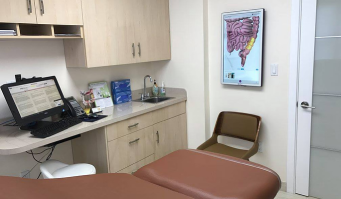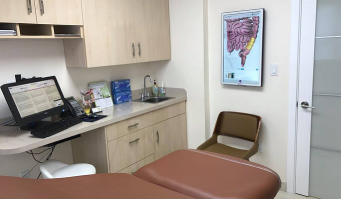Abdominal Pain
- Over 1000 5 Star Reviews
- Personalized Care
- Award Winning GI Specialist
What Is Abdominal Pain?
Abdominal pain shouldn’t be ignored. It’s crucial to consult a top gastroenterologist for a comprehensive evaluation and accurate diagnosis. This expert will assess your specific symptoms and determine the cause of your pain, which could be related to your stomach, appendix, gallbladder, spleen, bowel, liver, or even be of gynecological origin. Whether your pain is acute or chronic, it deserves immediate attention. Don’t delay seeking the best care in Forest Hills Gastro. Schedule an appointment with our experienced gastroenterologist to get the answers you need and start on the path to relief.
Causes of Abdominal Pain?
- Abdominal aortic aneurysm
- Appendicitis
- Cholangitis, which is inflammation of the bile duct.
- Cholecystitis
- Cystitis(irritation of the bladder)
- Diabetic ketoacidosis(in which the body has high levels of blood acids called ketones)
- Diverticulitis
- Duodenitis, which is inflammation of the top part of the small intestine.
- Ectopic pregnancy
- Fecal impaction..
- Heart attack
- Injury
- Intestinal obstruction
- Intussusception(in children)
- Kidney infection
- Kidney stones
- Liver abscess, a pus-filled pocket in the liver.
- Mesenteric ischemia
- Mesenteric lymphadenitis
- Mesenteric thrombosis
- Pancreatitis
- Pericarditis
- Peritonitis
- Pleurisy
- Pneumonia
- Pulmonary infarction, which is loss of blood flow to the lungs.
- Ruptured spleen
- Salpingitis, which is inflammation of the fallopian tubes.
- Sclerosing mesenteritis
- Shingles
- Spleen infection
- Splenic abscess, which is a pus-filled pocket in the spleen.
- Torn colon.
- Urinary tract infection (UTI)
- Viral gastroenteritis (stomach flu)
Symptoms of Abdominal Pain?
- Belching
- Bloating
- Indigestion
- Constipation
- Diarrhea
- Heartburn
- Pelvic discomfort
- Discomfort in the upper right or left, middle, or lower right or left abdomen
Diagnosis of Abdominal Pain?
Your healthcare provider will ask you questions about your abdominal pain to understand its nature and urgency. These questions will help them determine if you need immediate medical attention. Some information they’ll seek includes:
- Location: Where do you feel the pain?
- Intensity and characteristics: What does the pain feel like (sharp, dull, cramping)?
- Duration: How long have you had the pain?
- Severity and progression: Is the pain getting worse or staying the same?
- Location movement: Does the pain stay in one place or move around?
- Symptom triggers and relief: What makes the pain better or worse?
- Associated symptoms: Do you have any other symptoms?
Based on your answers, your healthcare provider will assess the severity of your condition and recommend the next steps:
- Immediate treatment: If your pain suggests a serious problem, you may need emergency care.
- Preliminary diagnosis: Sometimes, your provider may confidently identify a temporary and non-serious cause of your pain.
- Further investigation: If the cause is unclear, your provider may order tests to diagnose the underlying issue.
- Depending on the situation, you may need to return for further evaluation or your pain may resolve on its own.
By understanding your specific situation, your healthcare provider will guide you towards the appropriate diagnosis and treatment plan.
Treatment of Abdominal Pain?
While abdominal pain can arise from various causes, the treatments differ significantly. In some cases, like gallstones or appendicitis, surgery might be necessary. Other conditions, such as ulcers or infections, might respond well to medication. And sometimes, like with the stomach flu or kidney stones, you might simply need to wait it out until it passes.
However, if you’re unsure about the cause of your abdominal pain, especially if it doesn’t resolve on its own, seeking medical attention is crucial. Even seemingly mild cases can sometimes indicate a serious underlying issue.
If you believe your stomach pain is digestion-related, here are some self-care strategies you can try before seeking medical advice:
- Bowel rest:
- Hydration
- Heat therapy
- Natural remedies
Remember, these are just self-care options for suspected digestive issues. If your abdominal pain persists or worsens, always consult a healthcare professional for proper diagnosis and treatment.

“Thank you for visiting Forest Hills Gastroenterology & Liver Disease, my goal is to treat my patients in a highly personalized manner and I am dedicated to give you the utmost attention and respect that you deserve. For more infromation on this disease or to schedule a consultation with me, please give us a call or book a tele-health appointment online.”
Albert Shalomov
Dr. Albert Shalomov, MD
Disclaimer: Educational Infromation, Not Medical Advice
It’s important to remember that the information provided here is intended for educational purposes only and should not be misconstrued as definitive medical advice. Always seek the guidance of a qualified gastroenterologist for accurate diagnosis and treatment of any specific gastrointestinal condition. Only trained healthcare professionals can provide personalized recommendations and ensure your well-being.




